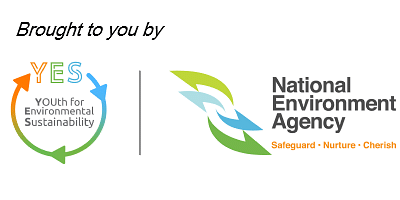BRANDED CONTENT
From potato skins to kopi cups: Innovative students tackle food and packaging waste in Singapore
Selected as one of the five winning pitches in the second edition of the DBS Foundation X NEA Hungry for Change Challenge, their solution is slated for a pilot phase at Koufu Fusionopolis
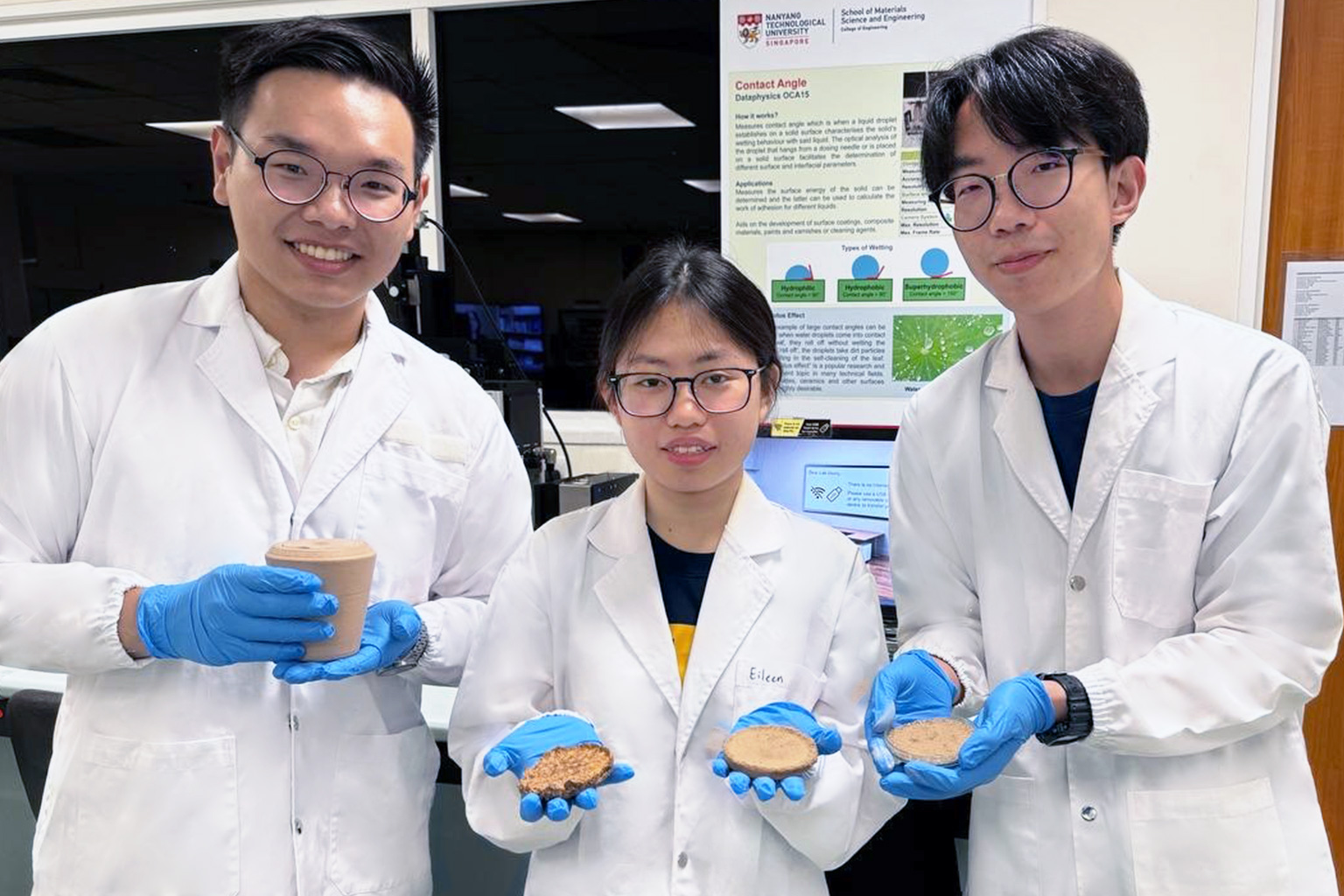
Mr Daniel Foo (left) and his team members show the Revital cup, made from food waste such as potato skin and spent coffee grounds. PHOTO: REVITAL
You could be getting your kopi or teh in a takeaway cup made from food waste such as spent coffee grounds and potato skins soon.
A prototype of the eco-friendly cup made from organic food waste material has been developed by Revital, a group led by mechanical engineering student Daniel Foo and his team from Nanyang Technological University and the National University of Singapore (NUS).
The cup is produced without chemicals and is food-safe as it features an organic coating derived from renewable sources, with water-resistant and thermal insulating walls.
It is Revital’s bid for the second edition of the DBS Foundation X NEA Hungry for Change Challenge, which has been expanded to encourage youth groups to innovate solutions that can reduce both food and packaging waste in Singapore.
“Our Revital cup successfully created a second life with food waste, turning it into a valuable resource for an innovative packaging solution,” says the 23-year-old.
Revital is one of the five winners in this year’s challenge, which also engaged corporate partners Koufu, McDonald’s and The Social Kitchen to work with the winning teams to pilot their solutions over six months.
For the upcoming pilot test, Revital has partnered with Koufu, specifically the food court’s Fusionopolis outlet. Mr Foo and his team estimate their invention will replace 100 paper cups used daily. With its organic material, the cup can be deposited directly into dedicated collection bins even without cleaning it.
Mr Foo explains that the cup is only one aspect of their solution: “Our concept will help companies achieve a true circular economy. The cup is produced from food waste ingredients generated by food production and the collection of the used cups will be regenerated as something of value such as fertilisers or insect feed.”
Ms Chua Sher Lin, chief financial officer of Koufu, says their company is looking forward to seeing how Revital’s solution will benefit their customers and operations.
“The DBS Foundation X NEA Hungry for Change Challenge provides companies like Koufu the opportunity to tap on the creativity of our youths and be exposed to fresh ideas to help reduce waste and promote resource circularity,” she adds.
Mr Foo says his team hopes to work with more corporate partners to scale up their solution as they are confident of its commercial viability.
The other winning teams this year include Noshinom, which blends freeze-dried fruits and vegetables that would otherwise be wasted into takeaway smoothies; Eco3DP, which upcycles plastic food packaging by converting them into materials for 3D printing; and Good Loop, a startup that converts food waste into fertiliser to grow vegetables for lower-income families.
Turning plastic waste into vases and toys
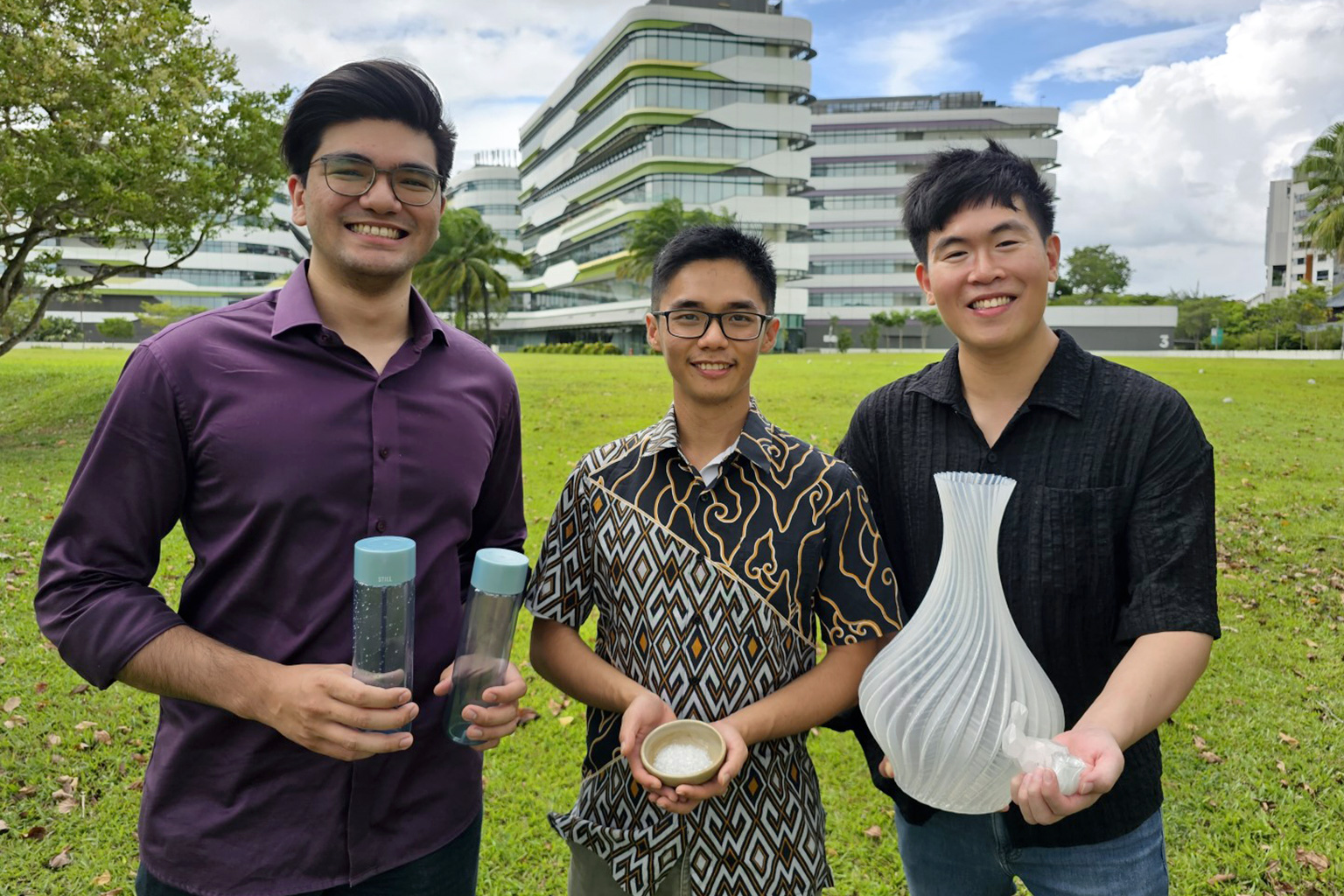
For Eco3DP, their solution was borne out of a team member's hobby.
Mr Johannes Sunarko, an ex-researcher at Singapore University of Technology and Design, had a knack for playing with his 3D printer. When the 27-year-old realised the amount of plastic waste packaging that was readily available, he began to explore the idea of repurposing it as material for 3D printing. It also sparked a discussion with his friend and Eco3DP team member Abel Teo.
They joined hands with two other like-minded friends to enter the Hungry for Change Challenge.
Eco3DP’s pilot involves taking The Social Kitchen’s used bento boxes and cutlery to convert them into materials for 3D printing. The waste is turned into practical household items such as tube squeezers, clothes hangers and vases.
The group’s solution can be likened to a vending machine that will collect used bento boxes and allow customers to select a product design to churn out from the plastic waste, which acts as the ink or filament for the 3D printer.
“We are trying to derive a small to medium-sized solution by bringing 3D printing into the mix,” notes Mr Teo, 28.
“In the long term, we hope that the initial pilot project with The Social Kitchen will be successful so that we can scale it up to include more used bento and cutlery from food and beverage outlets across Singapore. That will help in our national recycling efforts.”
From cheeseburger to fertiliser
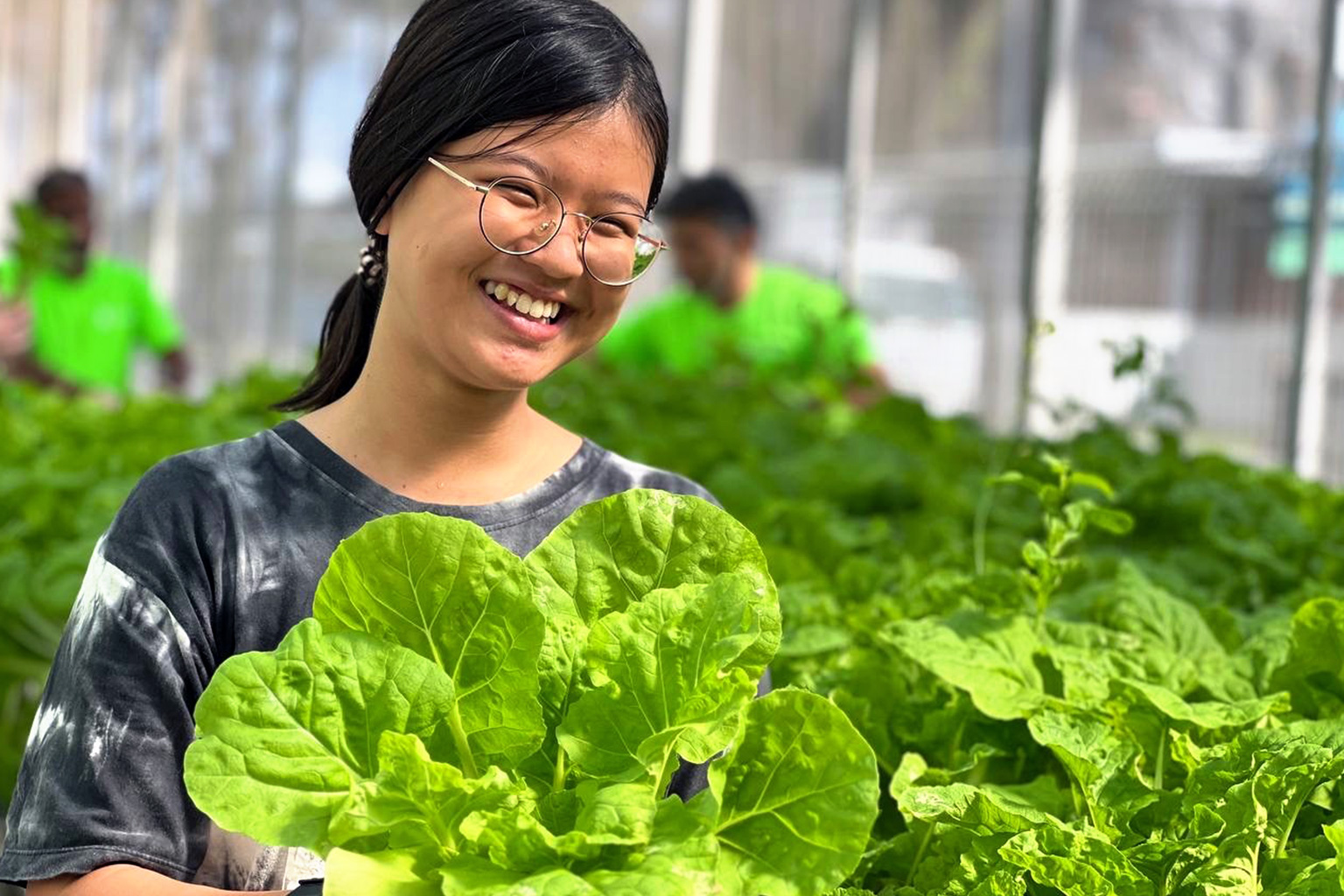
To sustain Singapore’s future, reducing waste and maximising resource efficiency are important, says Mr Koh Joon Hong, director of the Sustainability Division, Resource and Sustainability Group at the National Environment Agency (NEA).
“Promoting circularity – by reusing and recycling materials to close the resource loop – is key to achieving sustainability,” he explains.
“The projects developed by these youths, in partnership with industry players, showcase the different pathways to creating products of value from materials that would otherwise be discarded. These are great examples of innovations that contribute to progressing towards a more circular economy.”
This is evident in the Good Loop team, which will develop a solution that delivers vegetables to low-income households. What makes it unique is that the vegetables are grown using fertilisers that are converted from McDonald's food waste.
It was during the Covid-19 pandemic lockdown when Mr Isaac Khor, a 26-year-old NUS undergraduate studying environmental studies, and his father, Mr Khor Tuck Kuan, discovered how the black soldier fly can help compost waste and turn them into fertilisers for vegetables and plants. They have since converted it into a startup and developed their idea further to become a closed-loop solution.
The older Mr Khor, who has experience in sustainability engagement and education, says their future goal is to train and engage more young advocates in schools to encourage their peers to reduce food waste and recycle it in a circular economy.
Mr Isaac says: “Don’t think that what you do is too small to save the environment as every small action can lead to a big change.”
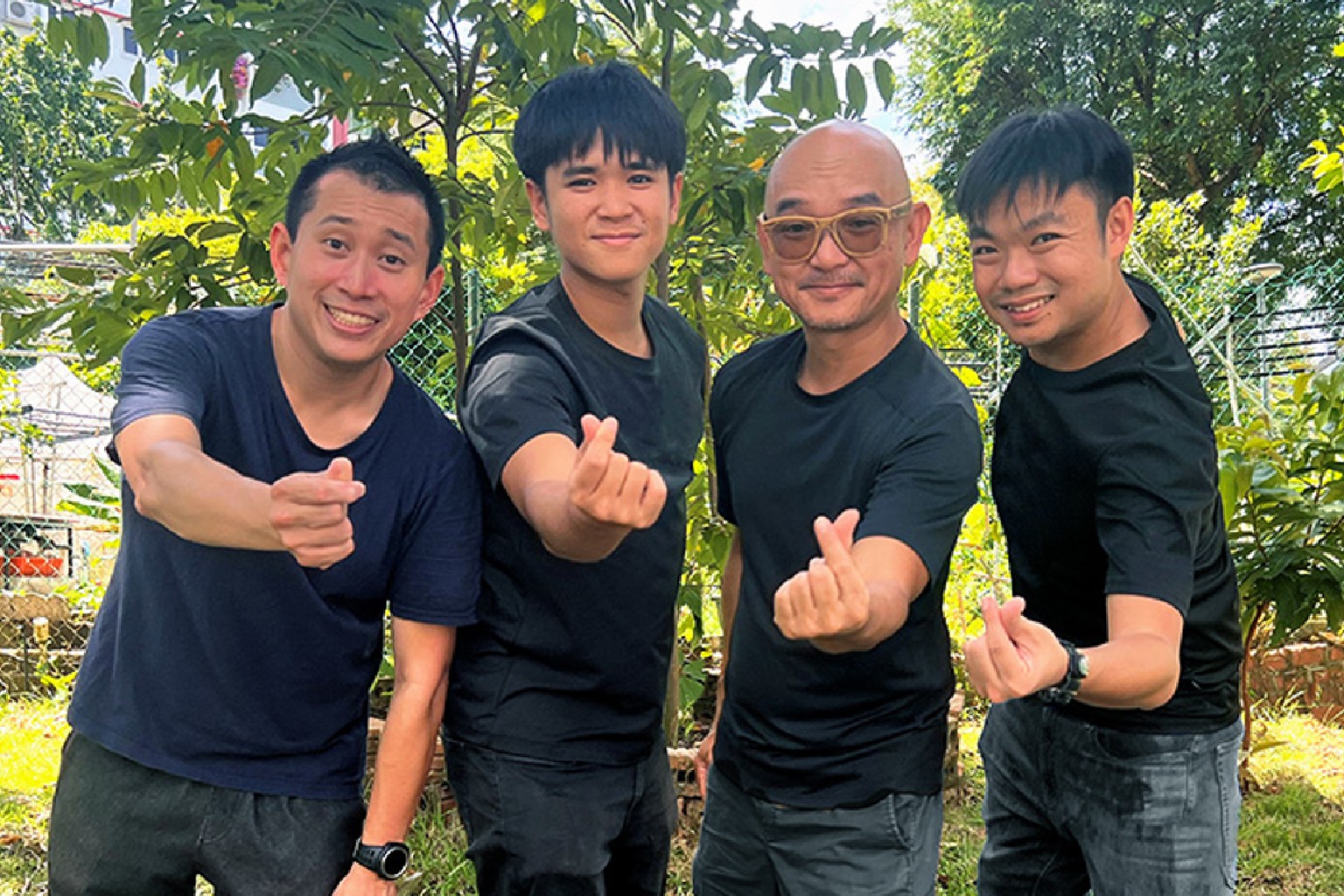
(From left) Good Loop members Aldric Tan, Isaac Khor, Khor Tuck Kuan and Teo Wei Zhe. PHOTO: GOOD LOOP
With such innovative solutions, NEA says that youths play an important role in shaping the future environment of Singapore.
“Under our Youth for Environmental Sustainability (YES) movement, NEA trains and provides practical platforms for youths to make meaningful contributions to our sustainability journey. The Hungry for Change Challenge is one such platform where we partner youths with both a passion for the environment as well as entrepreneurial spirit with corporate partners to bring innovative ideas from dreams to reality,” says Ms Gloria Tan, director, 3P Network Division, Public Engagement Group, NEA.
This sentiment is echoed by Ms Monica Datta, lead of Fostering Inclusion at DBS Foundation: “We see so much creativity out there, so many ideas that can potentially have a meaningful impact on society. Sometimes, all that is needed is extra encouragement and support – be it through funding, mentorship, or opportunities – to bring these ideas to life, so they can go on to fulfil their potential.
“This was the genesis for the DBS Foundation X NEA Hungry for Change Challenge when we first started it in 2022, and we do hope it has inspired and empowered more youth to progress on their impact journeys.”
About the DBS Foundation X NEA Hungry for Change Challenge
The DBS Foundation and NEA, in support of the YES movement, launched the Hungry for Change Challenge in 2022. The Challenge aims to empower young individuals from Institutes of Higher Learning to develop and pilot innovative solutions that can reduce food and packaging waste in Singapore.
Find out more about the winning teams’ solutions on the Hungry for Change Challenge website.
Visit the YES movement website for more information on youth platforms for environmental sustainability in Singapore.
